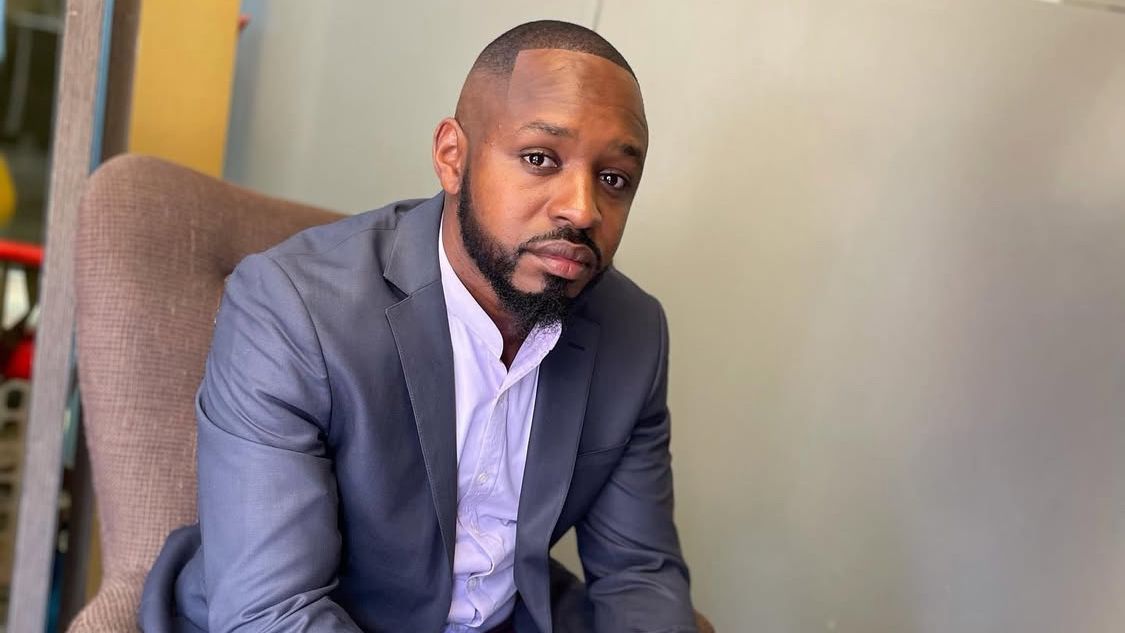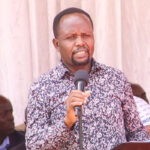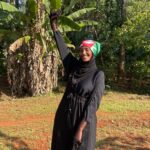Boniface Mwangi, born on July 10, 1983, in Taveta, Kenya, is a household name in Kenyan activism, celebrated for his fearless fight against corruption, injustice, and poor governance. From his early days as a photojournalist capturing the raw realities of the 2007–2008 post-election violence to founding initiatives like Picha Mtaani and PAWA254, Mwangi has become a symbol of courage and resilience. His activism, chronicled in the award-winning documentary Softie (2020), blends art, journalism, and protest to spark societal change. Despite facing arrests, abductions, and threats, Mwangi remains a vocal advocate for justice. This comprehensive article explores his educational journey, career milestones, family life, and recent developments
Early Life and Education
Boniface Mwangi’s early life was marked by economic hardship and resilience. Born in Taveta, near the Kenya-Tanzania border, to Wakiuru wa Mahinge, a cross-border trader, and Nimrod Kamanja, a District Officer, Mwangi was raised primarily by his mother after meeting his father only at age 14. His childhood involved frequent relocations, from Nyeri with his grandparents to Nairobi’s low-income suburbs like Ngara, Majengo, and Pangani. His mother’s death from liver cancer in 2000, when he was 17, profoundly shaped his outlook.
Mwangi’s formal education was disrupted by a troubled youth. At 11, he was sentenced to seven years at Getathuru Approved School for “vagrancy” after running away to Mombasa. He later attended Othaya and Kabete Approved Schools, where he faced harsh conditions and led a strike in 1997 to protest poor treatment, resulting in his expulsion in 1998. Despite these setbacks, Mwangi’s determination led him to pursue a diploma in Biblical Studies in 2002, initially aiming to become a pastor. He completed his Kenya Certificate of Secondary Education (KCSE) in 2016 at age 33, a testament to his perseverance.
He furthered his education at the East Africa School of Journalism, studying print journalism, and later attended New York University for a Human Rights and Documentary Photography program. Mwangi also earned an MSc in Journalism and Media Studies from Moi University, solidifying his expertise. His self-taught photography skills, inspired by Kenyan photographer Mohamed Amin, were honed through practical experience, leading to early recognition in the field.
| Educational Milestone | Institution | Details |
|---|---|---|
| Diploma in Biblical Studies | Bible School (unspecified) | Earned in 2002, aimed to become a pastor |
| Print Journalism | East Africa School of Journalism | Foundation for photojournalism career |
| Human Rights and Documentary Photography | New York University | Enhanced skills in activist photography |
| MSc in Journalism and Media Studies | Moi University | Advanced expertise in media and advocacy |
| KCSE | Completed in 2016 | Achieved at age 33, overcoming early disruptions |
Career Trajectory
Mwangi’s career began with odd jobs, including selling books, working in a supermarket, and running a video game shop. His passion for photography, sparked by Mohamed Amin’s work, led him to join The Standard as a freelance photographer in 2005. His coverage of the 1998 U.S. Embassy bombing and the 2007–2008 post-election violence in Kenya brought him international acclaim, earning him the CNN MultiChoice African Photojournalist of the Year Award in 2008 and 2010. The violence he witnessed profoundly impacted him, leading to post-traumatic stress and a shift from journalism to activism.
In 2009, Mwangi founded Picha Mtaani, a traveling photography exhibition that showcased images of the post-election violence to foster dialogue and reconciliation across Kenya, drawing over 2 million visitors. In 2011, he established PAWA254, a Nairobi-based hub for artists, journalists, and activists to collaborate on social justice initiatives through creative mediums like graffiti, film, and music. PAWA254 provides free training to amplify marginalized voices, with its walls adorned with portraits of global leaders like Martin Luther King Jr.
Mwangi’s activism includes bold protests, such as the 2013 demonstration with blood-drenched pigs to highlight political corruption. He founded initiatives like MaVulture and Kenya ni Kwetu to combat impunity and promote peace ahead of the 2013 elections. In 2017, he formed the Ukweli Party and ran for the Starehe Constituency parliamentary seat, garnering 15,877 votes but losing to Charles Njagua Kanyi. His 2016 memoir, Unbounded, uses photography and personal stories to document his journey and advocacy.
Mwangi’s work has earned him numerous accolades, including the Prince Claus Award (2012), TIME 100 Next List (2021), and the Africa Magic Viewers’ Choice Award for Softie (2020). Named among the 100 Most Influential Africans by New African Magazine in 2014, 2016, and 2020, he continues to inspire through public speaking and activism.
| Position/Initiative | Duration | Key Responsibilities |
|---|---|---|
| Freelance Photographer, The Standard | 2005–2008 | Covered major events like the 1998 U.S. Embassy bombing and 2007–2008 violence |
| Founder, Picha Mtaani | 2009–2012 | Led nationwide photography exhibitions for reconciliation |
| Founder, PAWA254 | 2011–Present | Established hub for creative activism and social change |
| Ukweli Party Leader, Parliamentary Candidate | 2017 | Contested Starehe Constituency seat |
| Author, Unbounded | 2016 | Published memoir on activism and personal journey |
Family Life
Boniface Mwangi is married to Hellen Njeri Mwangi, a Daystar University graduate, activist, and co-founder of PAWA254. They met in 2006 at a fast-food joint in Nairobi, where Mwangi was captivated by her intellect and beauty. Despite initial challenges, including Njeri’s pregnancy before their marriage, they wed in March 2008 at the Nairobi Sailing Club. They have three children: Naila, Jabu, and Nate. Njeri, a member of Throttle Queens, a biker sisterhood, is a pillar of support, often joining Mwangi in protests and community initiatives. In December 2022, they celebrated their 15th wedding anniversary, with Mwangi publicly praising Njeri’s resilience amid the threats they face.
The Mwangi family has endured significant risks due to Boniface’s activism. Their home in Lukenya was bombed in October 2020, an incident Mwangi linked to former Machakos Governor Alfred Mutua. Death threats, particularly in 2017, targeted their children, highlighting the personal costs of their work. Despite this, the family remains united, often participating in protests together, as Mwangi believes “suffering for what is just is righteous.”
| Family Member | Role/Detail |
|---|---|
| Hellen Njeri Mwangi | Wife, activist, co-founder of PAWA254 |
| Naila, Jabu, Nate | Three children, often involved in family-oriented activism |
Achievements and Controversies
Mwangi’s achievements are monumental. His Picha Mtaani initiative sparked nationwide conversations about peace, while PAWA254 has empowered countless young activists. His awards include:
- CNN MultiChoice African Photojournalist of the Year (2008, 2010): For his post-election violence coverage.
- Prince Claus Award (2012): For innovative use of art in social justice.
- Africa Magic Viewers’ Choice Award (2020): For Softie, which won at Sundance.
- TIME 100 Next List (2021): Recognized as an emerging global leader.
However, Mwangi’s activism has sparked controversies. In 2016, he linked Deputy President William Ruto to the assassination of Jacob Juma, leading to a defamation lawsuit and accusations of fabricating claims. His 2019 arrest for allegedly organizing a revolution and his outspoken criticism of government officials have drawn accusations of being anti-Kenyan or Western-backed. Mwangi’s protests, like the 2013 pig demonstration, have been criticized for their provocative nature, though supporters argue they are necessary to challenge systemic corruption.
Recent Developments
In May 2025, Mwangi was detained in Dar es Salaam, Tanzania, while attending the treason trial of opposition leader Tundu Lissu. Initially allowed entry at Julius Nyerere International Airport, he was later held by Tanzania’s Immigration Department, raising concerns about his safety. His wife, Njeri, reported difficulties contacting him, and human rights groups, including Vocal Africa, demanded his release, citing shrinking civic space in Tanzania. The Tanganyika Law Society clarified that Mwangi and Ugandan advocate Agather Atuhaire were not deported but remained in custody, fueling speculation.
In October 2024, Mwangi was allegedly abducted from his Machakos home by six unidentified individuals, later found at Kamukunji Police Station in Nairobi. Released without charges, the incident, confirmed by Vocal Africa’s Hussein Khalid, followed his call for a protest at the Standard Chartered Marathon against the Kenya Kwanza government. The presence of Narc Kenya leader Martha Karua during his release underscored his political influence. These incidents highlight the ongoing risks Mwangi faces, with human rights groups condemning the lack of investigation into threats against him.
Vision for Kenya
Mwangi’s vision is rooted in justice, equity, and freedom for all Kenyans. Through PAWA254, he fosters a community of activists using art to challenge corruption and impunity. His initiatives like Team Courage and Kenya ni Kwetu aim to build a patriotic citizens’ movement. Mwangi’s 2017 parliamentary bid and recent protests reflect his belief that citizens can liberate Kenya from poor leadership. His memoir, Unbounded, and the documentary Softie underscore his commitment to a better Kenya, despite personal sacrifices.
Boniface Mwangi’s journey from a troubled youth to a globally recognized activist is a story of resilience and purpose. His educational perseverance, groundbreaking career in photojournalism and activism, and supportive family life highlight his multifaceted impact. Despite facing arrests, abductions, and threats, Mwangi remains a beacon of hope for social change in Kenya. As he navigates recent challenges, including his 2025 detention in Tanzania, his legacy as a fearless advocate continues to inspire. This article, crafted for Kenya’s leading business platforms, captures the essence of Mwangi’s contributions and challenges, ensuring readers are informed and engaged.





